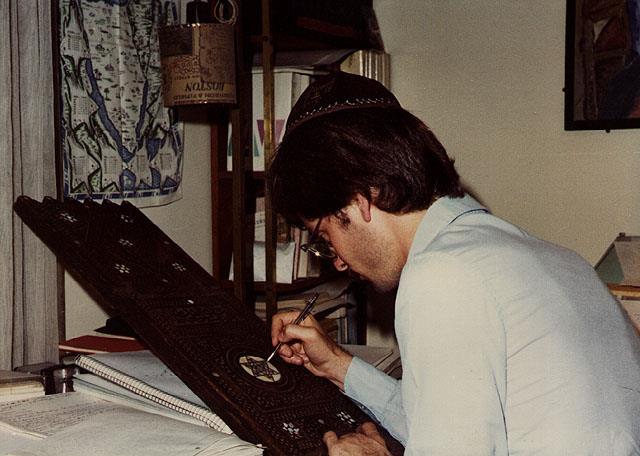
קהילת יהודי בואנוס איירס
בואנוס איירס
בירת ארגנטינה.
מספר תושביה 3,447,000 (אומדן 1968). ב-1976 התגוררו בה כ-300-250 אלף יהודים, רובה המכריע של יהדות ארגנטינה. היישוב האשכנזי מיוצג על-ידי "חברת עזרה הדדית" (בספרדית אמי"א); לספרדים עדות נפרדות לפי ארצות מוצאם - צפון- אפריקה, טורקיה ויוון, חלב ודמשק. פרט לתנועה קונסרבאטיבית ותנועה רפורמית שנוסדה ב-1964, האוכלוסיה היהודית נמנית עם הזרם האורתודוכסי ביהדות; אבל הדת אינה תופסת מקום מרכזי בחיי רוב היהודים. ההזדהות עם העם היהודי היא יותר על בסיס לאומי והשפעת המפלגות הציוניות בולטת בחיי הציבור. מוסדות החינוך היהודיים הם קהילתיים ומפלגתיים, רובם בהשגחת ועד החינוך המשותף לאשכנזים ולספרדים. מאז 1967 הפכו המוסדות לחינוך משלים לבתי-ספר יומיים, אבל שיעור המבקרים בהם מקרב גילאי בית- הספר היהודיים בעיר קטן למדי. פעולות תרבות נרחבות מנהלות בעיר האגודות "הבראיקה" ו"הכוח". מופיעים שני עיתונים יומיים באידיש וכתבי-עת לרוב. בואנוס איירס נשארה אחד המרכזים הבודדים לתרבות אידיש וספרותה.
פרט לאנוסים, ראשוני המהגרים היהודיים הגיעו לעיר ממערב- אירופה באמצע המאה ה-19 וב-1862 התארגנה הקהילה הראשונה.
לקראת סוף המאה התחילו להגיע יהודים מצפון-אפריקה וממזרח- אירופה, בפרט לאחר הקמת חברת יק"א שהשקיעה מאמצעים רבים כדי להפוך את ארגנטינה לארץ הגירה ולהתיישבות חקלאית להמוני יהודים מרוסיה. ב-1909 כבר מנה היישוב היהודי כ-40,000 נפש עם ארגונים ומוסדות משלהם. עם עליית הנאצים גברה ההגירה ממרכז- אירופה. במלחמת- העולם השנייה ואחריה הטילה ממשלת ארגנטינה איסור על כניסת יהודים. פרט למספר קטן שנקלט בשנות 1957-1956 גדל היישוב היהודי בבואנוס איירס רק מריבוי טבעי ובעיקר מהגירה פנימית מערי-השדה.
ב- 1992 תקפו מחבלים את שגרירות ישראל בבואנוס איירס. ב- 18 ביולי 1994 פוצץ הבניין שבו שוכן מרכז הקהילות היהודיות בארגנטינה. בפיצוץ נהרגו מאה בני אדם, רבים נפצעו והושמד ארכיון הקהילה בת מאה שנים.
בשנת 1997 חיו 250,000 יהודים בארגנטינה כולה 180,000 מתוכם בבואנוס איירס.
בירת ארגנטינה.
מספר תושביה 3,447,000 (אומדן 1968). ב-1976 התגוררו בה כ-300-250 אלף יהודים, רובה המכריע של יהדות ארגנטינה. היישוב האשכנזי מיוצג על-ידי "חברת עזרה הדדית" (בספרדית אמי"א); לספרדים עדות נפרדות לפי ארצות מוצאם - צפון- אפריקה, טורקיה ויוון, חלב ודמשק. פרט לתנועה קונסרבאטיבית ותנועה רפורמית שנוסדה ב-1964, האוכלוסיה היהודית נמנית עם הזרם האורתודוכסי ביהדות; אבל הדת אינה תופסת מקום מרכזי בחיי רוב היהודים. ההזדהות עם העם היהודי היא יותר על בסיס לאומי והשפעת המפלגות הציוניות בולטת בחיי הציבור. מוסדות החינוך היהודיים הם קהילתיים ומפלגתיים, רובם בהשגחת ועד החינוך המשותף לאשכנזים ולספרדים. מאז 1967 הפכו המוסדות לחינוך משלים לבתי-ספר יומיים, אבל שיעור המבקרים בהם מקרב גילאי בית- הספר היהודיים בעיר קטן למדי. פעולות תרבות נרחבות מנהלות בעיר האגודות "הבראיקה" ו"הכוח". מופיעים שני עיתונים יומיים באידיש וכתבי-עת לרוב. בואנוס איירס נשארה אחד המרכזים הבודדים לתרבות אידיש וספרותה.
פרט לאנוסים, ראשוני המהגרים היהודיים הגיעו לעיר ממערב- אירופה באמצע המאה ה-19 וב-1862 התארגנה הקהילה הראשונה.
לקראת סוף המאה התחילו להגיע יהודים מצפון-אפריקה וממזרח- אירופה, בפרט לאחר הקמת חברת יק"א שהשקיעה מאמצעים רבים כדי להפוך את ארגנטינה לארץ הגירה ולהתיישבות חקלאית להמוני יהודים מרוסיה. ב-1909 כבר מנה היישוב היהודי כ-40,000 נפש עם ארגונים ומוסדות משלהם. עם עליית הנאצים גברה ההגירה ממרכז- אירופה. במלחמת- העולם השנייה ואחריה הטילה ממשלת ארגנטינה איסור על כניסת יהודים. פרט למספר קטן שנקלט בשנות 1957-1956 גדל היישוב היהודי בבואנוס איירס רק מריבוי טבעי ובעיקר מהגירה פנימית מערי-השדה.
ב- 1992 תקפו מחבלים את שגרירות ישראל בבואנוס איירס. ב- 18 ביולי 1994 פוצץ הבניין שבו שוכן מרכז הקהילות היהודיות בארגנטינה. בפיצוץ נהרגו מאה בני אדם, רבים נפצעו והושמד ארכיון הקהילה בת מאה שנים.
בשנת 1997 חיו 250,000 יהודים בארגנטינה כולה 180,000 מתוכם בבואנוס איירס.